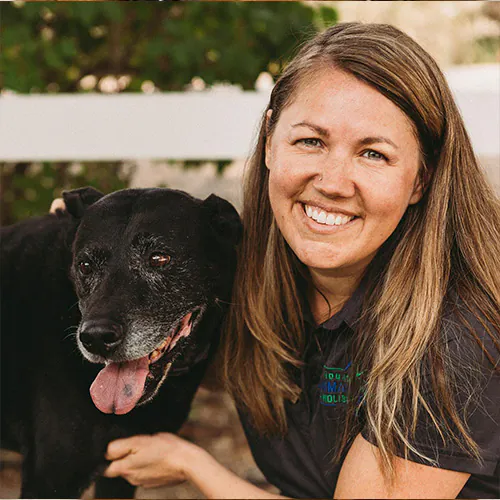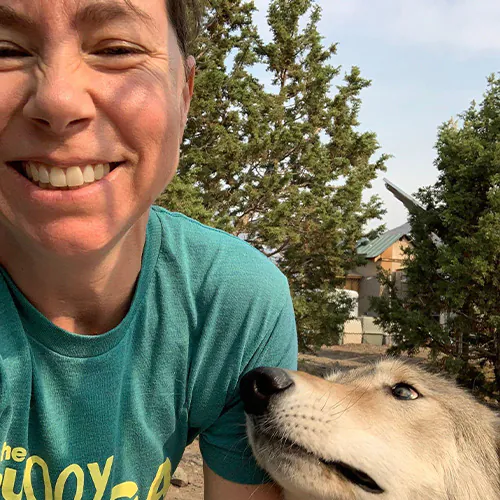Introduction to End-of-Life Care for Pets
End-of-life care encompasses far more than a single moment or decision. It is a spectrum of support that helps pets remain as comfortable as possible during the final chapter of their lives, while also supporting the people who love them. This care can take many different forms depending on your pet’s condition, needs, and what feels right for your family.
Some families pursue palliative care options designed to maintain quality of life and manage discomfort. Others may reach a point where euthanasia feels like the most humane path forward. Both are valid, deeply personal considerations, and our role is to provide you with clear, compassionate information so you can make the choices that are right for you and your pet.
Signs That a Pet May Be Approaching the End of Their Life
Recognizing changes in your pet’s health and well-being is an important part of end-of-life awareness. While every pet is different, there are some common signs that may indicate a shift in their condition.
These signs can include:
- Decreased appetite or interest in food and water
- Significant changes in mobility, coordination, or strength
- Withdrawal from family interaction or favorite activities
- Difficulty breathing or episodes of labored breathing
- Incontinence or loss of basic bodily functions
- Visible discomfort, restlessness, or an inability to settle
These changes do not always mean a pet is at the very end of their life, but they are worth discussing with our team. Our veterinarians can help you understand what you are observing and what, if any, next steps may be appropriate. Reaching out early gives you more time and more options.
Palliative Care vs. Euthanasia: Understanding Your Options
Two of the most common approaches to end-of-life care are palliative care and euthanasia. Understanding the differences can help you have a more informed conversation with our team when the time comes.
| Palliative Care | Euthanasia | |
|---|---|---|
| Goal | Comfort and quality of life management | A peaceful, humane passing |
| Timeline | Ongoing, over weeks or months | A single, planned appointment |
| Best suited for | Pets with manageable symptoms who still have quality of life | Pets experiencing significant pain or unmanageable decline |
| Family involvement | Active, ongoing support and care at home | Present during the procedure if desired |
| Our role | Guidance, monitoring, and compassionate care | Gentle, dignified administration with full family support |
This is not a checklist or a directive. It is simply a framework to help you think through what your pet may need, and what kind of support you may want from our team. Every situation is different, and every family arrives at their own understanding in their own time. Our experienced team is here to answer your questions without pressure or judgment.
Planning for End-of-Life Care
Planning for end-of-life care is a critical step in ensuring our pet’s final days are filled with comfort, dignity, and compassion. This process involves considering various factors, such as our pet’s quality of life, pain management, and aftercare options. It’s essential to have an open and honest discussion with our veterinarian about our pet’s needs and concerns, as well as our own emotional well-being. By being prepared and having a plan in place, we can provide our pet with the care and support they deserve during this challenging time.
Gentle Euthanasia Services at Mountain View Animal Hospital
If you and your family determine that euthanasia is the right choice for your pet, we want you to feel informed and at ease before, during, and after the appointment. Our team takes great care to make the experience as gentle and dignified as possible.
You are welcome to be present with your pet throughout the process. We encourage you to bring any comfort items that may help your pet feel safe, and to take as much time as you need before and after. Our team will be with you every step of the way, moving at your pace. Afterward, we are happy to discuss options for your pet’s remains and provide information on any additional resources that may support your family.
Grief Support Resources for Pet Parents in Reno, NV
The grief that follows the loss of an animal companion is real, significant, and deserving of care. Research and professional guidance from the American Veterinary Medical Association recognize that pet loss can produce grief comparable to losing a family member or close friend, and that seeking support during this time is both healthy and encouraged.
There is no right or wrong way to grieve. Some people find comfort in community, others in ritual, and others simply in allowing themselves to feel what they feel. Several organizations provide resources on end-of-life care to help you through your grieving process. Many of these organizations include support groups and hotlines to offer additional aid during this difficult time.
Some of these organizations include:
- Association For Pet Loss and Bereavement
- Lap of Love
- Pet Cloud
- Letters to Pushkin
- Human-Animal Bond Trust
We encourage any family navigating this time to lean on the people and resources around them. Our team is also always available to talk through what you are feeling and point you toward additional support when needed. You are not alone in this.
End-of-Life Care for Pets FAQ
Knowing When It’s Time to Say Good-Bye
One of the most heartfelt and difficult decisions a pet parent may face is knowing when it’s time to say good-bye. If you find yourself uncertain or overwhelmed, please know that you are not alone—we are here to help guide you with compassion and care.
Our team can gently assess your pet’s quality of life and offer thoughtful, honest recommendations, always with your pet’s comfort and dignity at the center of our guidance. We understand the depth of your bond, and we are committed to supporting you through every step of this tender journey.
Should euthanasia be the most compassionate option, we provide quiet and private spaces designed to offer peace, comfort, and respect for both you and your beloved companion. We also offer aftercare options and grief support to help you honor your pet’s memory with the love and dignity they deserve.
When the time feels right, please reach out to us—we will walk alongside you with understanding, empathy, and unwavering support.
Call us at (775) 853-6900 or request an appointment through our contact form.







